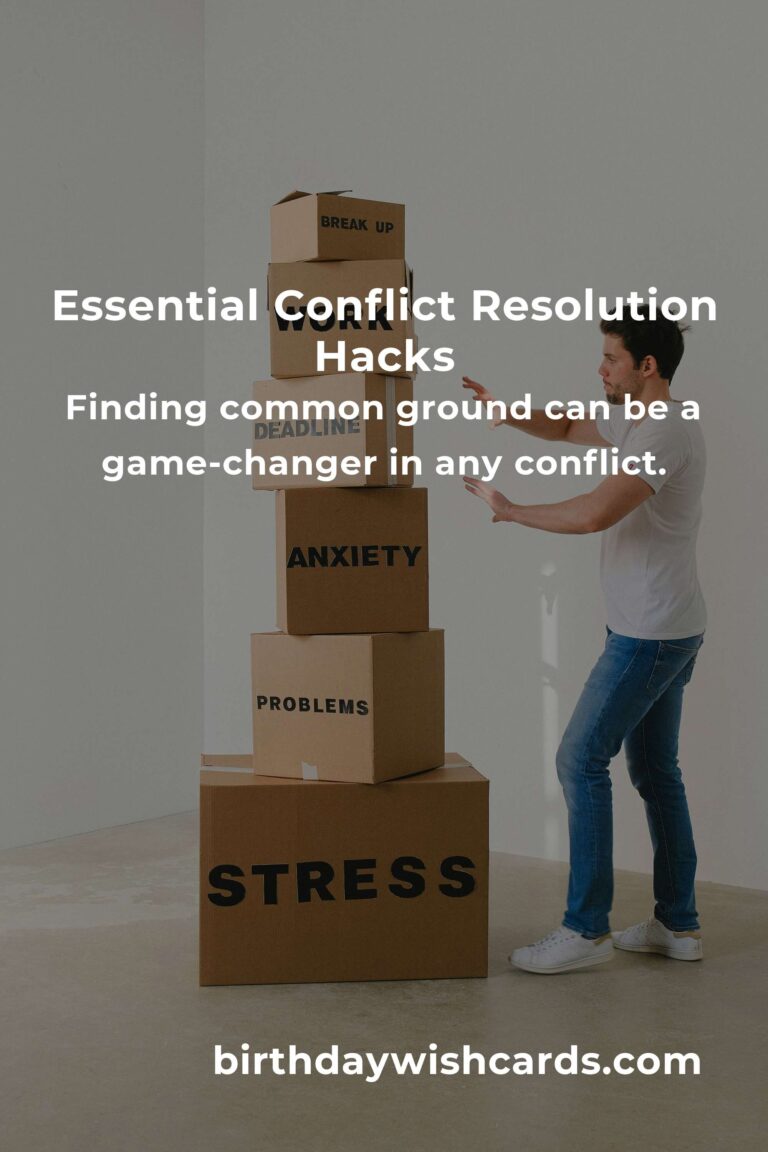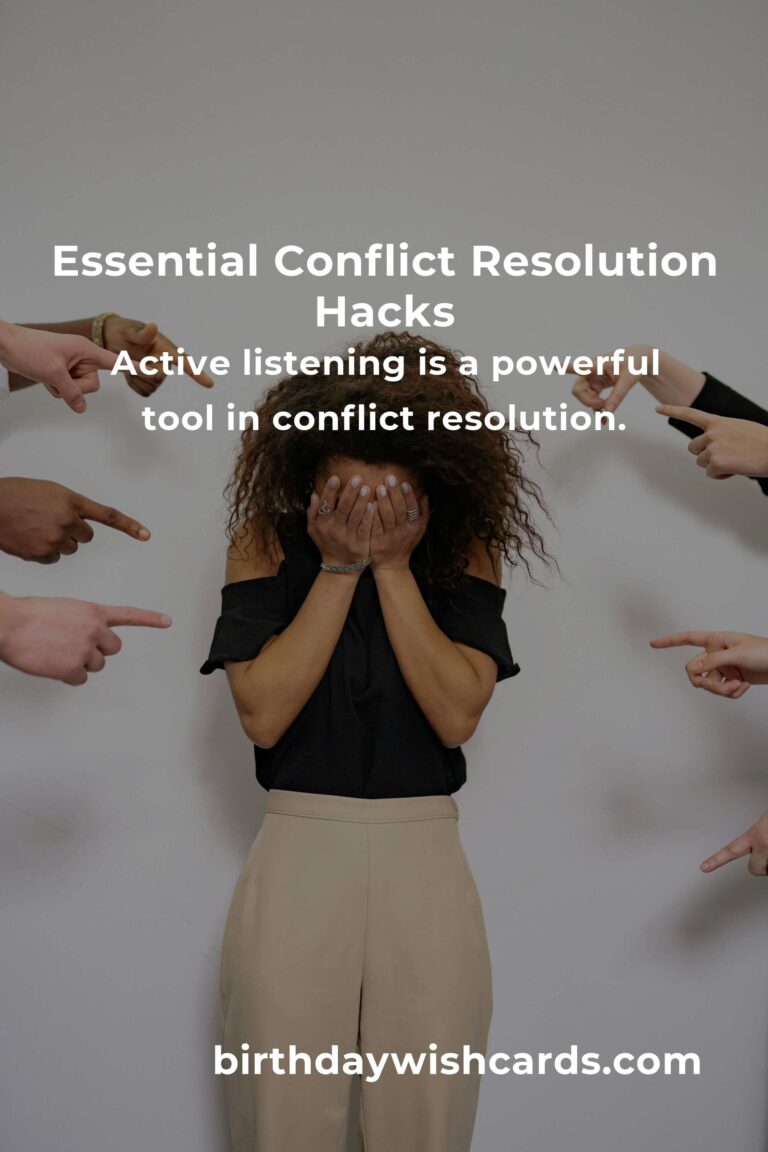
Conflict is an inevitable part of human interaction, whether in personal relationships, work environments, or social groups. Knowing how to effectively resolve conflicts is a crucial skill that can lead to more harmonious and productive interactions. In this article, we’ll explore essential conflict resolution hacks that can help you navigate disputes and disagreements with ease.
Understanding the Nature of Conflict
Before diving into resolution strategies, it’s important to understand what conflict is. Conflict arises when there is a perceived incompatibility of actions, goals, or ideas. It can occur between individuals, groups, or even within oneself. Understanding the root causes of conflict can help in addressing the issues effectively.
Active Listening
One of the most powerful tools in conflict resolution is active listening. It involves paying full attention to the speaker, acknowledging their perspectives, and responding thoughtfully. Active listening not only helps in understanding the other person’s point of view but also in building trust and empathy. Here are some tips for active listening:
- Maintain eye contact.
- Use verbal affirmations like ‘I see’ or ‘I understand’.
- Ask clarifying questions.
- Reflect back what you hear to confirm understanding.
Effective Communication
Clear and effective communication is key to resolving conflicts. When communicating, be assertive but not aggressive. Use ‘I’ statements to express your feelings and needs without blaming the other person. For example, say ‘I feel upset when…’ instead of ‘You make me upset when…’. This approach reduces defensiveness and encourages open dialogue.
Finding Common Ground
In any conflict, finding common ground can be a game-changer. Look for areas where both parties agree or share similar interests. Highlighting these commonalities can foster cooperation and reduce tension. It also shifts the focus from differences to shared goals.
Problem-Solving Techniques
Once the nature of the conflict is clear, it’s time to engage in problem-solving. This involves identifying solutions that satisfy all parties involved. Some effective problem-solving techniques include:
- Brainstorming possible solutions together.
- Evaluating the pros and cons of each solution.
- Choosing a solution that is mutually beneficial.
- Implementing the solution and monitoring its effectiveness.
Emotional Intelligence
Emotional intelligence plays a significant role in conflict resolution. Being aware of your emotions and those of others can help in managing responses and maintaining control during heated discussions. Practice self-regulation, empathy, and social skills to enhance your emotional intelligence.
Setting Boundaries
Setting clear boundaries is essential to prevent conflicts from escalating. Establish what is acceptable and what is not in terms of behavior and communication. Respect each other’s boundaries and encourage mutual respect.
Seeking Mediation
When conflicts cannot be resolved through direct communication, seeking mediation can be beneficial. A neutral third party can facilitate discussions and help both sides reach a resolution. This is particularly useful in complex or emotionally charged conflicts.
Conclusion
Mastering conflict resolution requires patience, practice, and a willingness to understand others. By implementing these essential hacks, you can turn potential conflicts into opportunities for growth and collaboration. Remember, the goal is not to win but to resolve issues in a way that is satisfactory for all parties involved.
Conflict is an inevitable part of human interaction. Active listening is a powerful tool in conflict resolution. Clear and effective communication is key to resolving conflicts. Finding common ground can be a game-changer in any conflict. Emotional intelligence plays a significant role in conflict resolution.
#ConflictResolution #CommunicationSkills #EmotionalIntelligence

